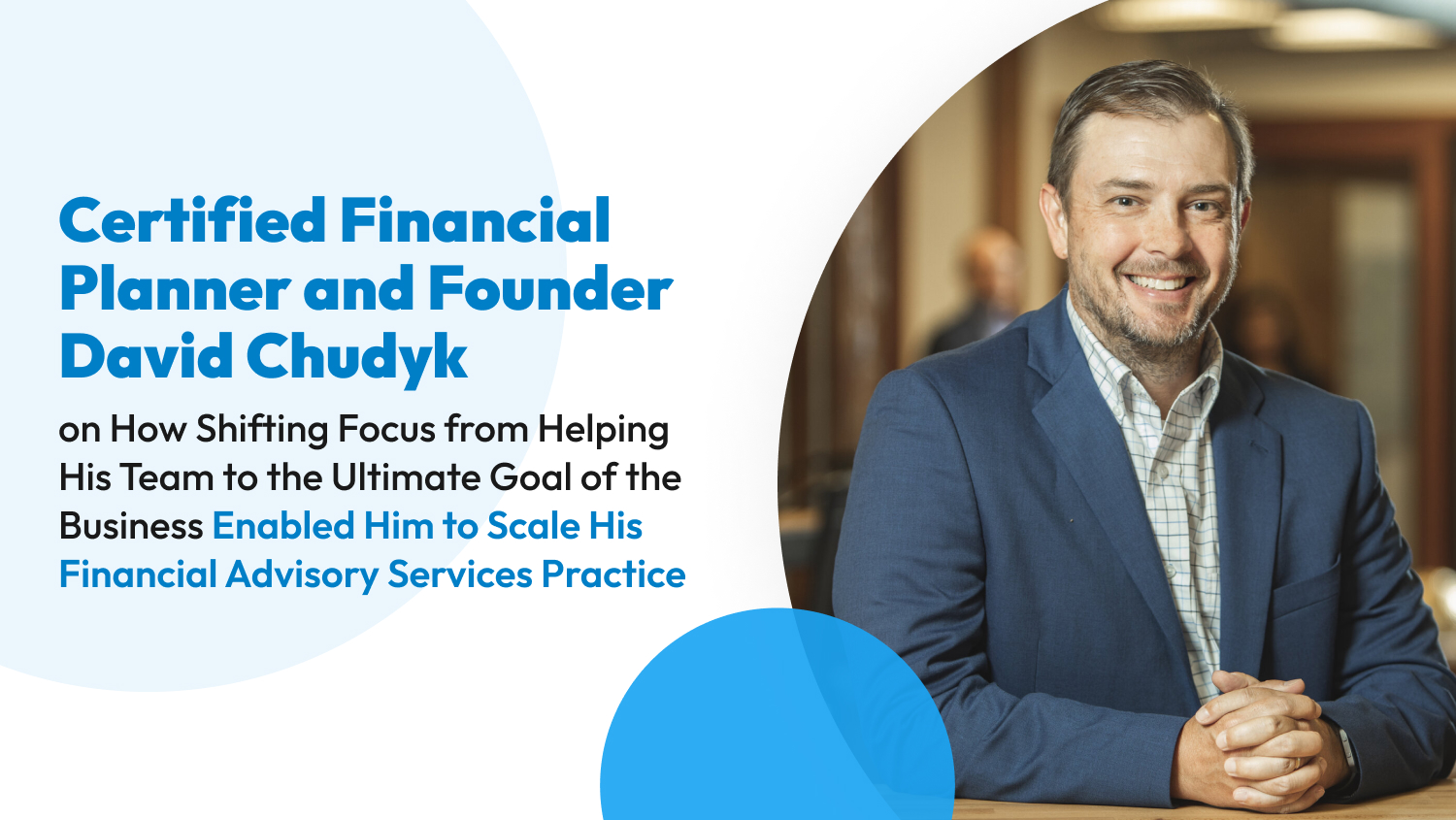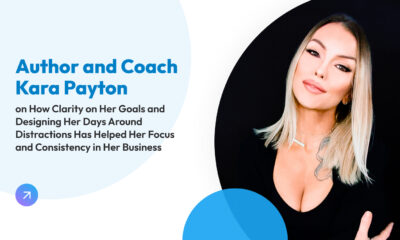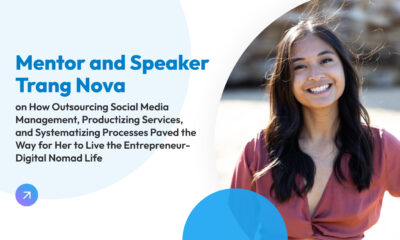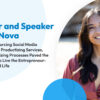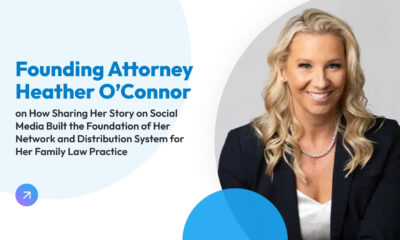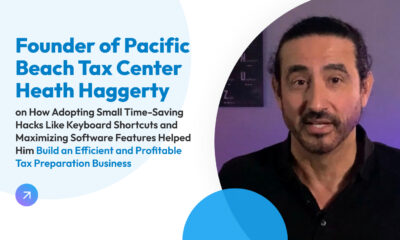Case Study
Certified Financial Planner and Founder David Chudyk on How Shifting Focus from Helping His Team to the Ultimate Goal of the Business Enabled Him to Scale His Financial Advisory Services Practice
David Chudyk had only worked a few years in the financial services industry when he decided to buy a small book of business from a retiring insurance agent in 2005. It was a captive insurance agency, where he could only sell one company’s home, auto, and business insurance, and some investments on a limited basis. But Chudyk had a bigger goal of helping people improve their quality of life by offering expert advice on other areas of financial planning, such as estate, tax, retirement, and investment planning.
In this article, we learn about how Chudyk expanded his insurance business into a comprehensive financial planning service. We learn about his marketing, hiring, and other business challenges, as well as the people, systems, and tools he used to overcome them. Don’t forget to check out his Read-Watch-Listen list and Productivity Stack Quick Reference at the end of the article.
Table of Contents
- Starting
- Growing
- Scaling & Success
- Other recommended tools
- Hindsight: What Chudyk would have done differently
- Wrap Up
- Chudyk’s Productivity Stack Quick Reference
- Chudyk’s Read-Watch-Listen List
- More About David Chudyk
Starting
Challenge 1: Marketing and growing sales from a stagnant insurance book of business
When Chudyk took over the captive insurance book of business in 2005, there was no marketing to speak of. The former agency had a lot of loyal long-term customers, but no processes in place for generating new business, cross-selling, or upselling. The office was tucked away in a side street with tiny signage and the last agent didn’t even have business cards!
The pressure to drum up business was not just for Chudyk’s personal revenue goals. He was in contract with an insurance company that set production targets, and he had also taken out a loan to acquire this book of business. What steps did he take to revive marketing and sales for the existing client base and to find new clients, as well?
Solution: In the 2005 pre-social media marketing era, the first thing Chudyk did was to move the agency office from a side street to a higher-traffic part of town near a strip mall.
He didn’t have the budget for billboard ads so instead, he engaged in what he calls, “grassroots marketing.” He put himself in the mindset of someone looking to buy something, or looking for a realtor, or an attorney. For most people, they would ask someone they know for a recommendation.
Especially for services related to finance and the law, where you could potentially lose a lot on poor, incomplete, or even fraudulent advice, the importance of knowing and trusting the service provider is crucial. And so, getting the recommendation of friends and family who can vouch for his agency’s credibility was a very effective marketing strategy.
He went out and met with existing clients and had conversations with them. He talked about the value they’ve provided, tried to stay visible, and asked for referrals. He recalls how he would connect with clients, “Hey, you know, before you came to us, you were in this position and we did this for you and [helped you get] this extra protection in place. If this subject ever comes up with any of your friends or family, send them our way. We’re happy to do a consultation and do the right thing for them. We really are looking to grow our business through referrals.”
Chudyk emphasizes the importance of finding the right professionals to help you, “People think you can Google or go to ChatGPT and find out the answer to anything. But you don’t even know the questions to ask if you’re not an expert. That’s why we should use professionals to the extent that we can and not 800 numbers or artificial intelligence for things that are really, really important. There’s just too much at stake when you’re dealing with your money, your house, your legal health, and things like that to try to figure it out yourself.”
People: Chudyk, a part-time secretary who stayed on in the agency
Systems: Grassroots marketing, referral system
Tools: Phone, email, calendar, better-located office
Growing
Challenge 2: Delegation: how to hire and keep the right people
Chudyk built up his team as he grew the business. He admits to being a bit of a people-pleaser and initially hiring people out of pity instead of thinking about who could help with the business goals. He worried that if he let go of underperforming staff, they would end up homeless. So he tolerated things like a team member spending half the day angrily texting her boyfriend and trying to bail him out of jail.
He eventually had to confront this conflict between his desire to help people but also wanting his business to succeed. On the agency’s tenth anniversary, he thought to himself, “I’m really thankful and blessed to be where I am, but I thought I’d be further along.”
Solution: Through business coaching, and learning from personal development books, audiobooks, and podcasts, Chudyk came to realize and accept that the goals of the business have to be the ultimate guiding principle in hiring and firing. “You have to have a vision and you cannot allow any one thing to consistently get in the way of that vision, or else the vision doesn’t happen.”
He learned a few things through this period: 1) You can’t make champions out of everyone, especially if they are in their 30s or 40s and always broke or getting in trouble; 2) The people who aren’t a good fit with your company are probably not thrilled to be working there anyway and may thrive somewhere else; 3) You can graciously part ways with people who don’t fit with your team; 4) Lastly, he realized his desire to help didn’t mean he had to hire people into his team to save them from difficult circumstances. He shares, “We can be good people in this world, but we have to surround ourselves with people that can help us to get towards our goal.”
People: Chudyk, business coach
Systems: Seeking guidance through business coaching, and personal development resources, basing staffing decisions on what is good for the business
Tools: The E-Myth Revisited: Why Most Small Businesses Don’t Work and What to Do About It, Strategic Coach
Scaling & Success
Challenge 3: Business expansion and figuring out the best use of his time
In 2019, Chudyk formed a partnership with a large wealth management firm, Parallel Financial. His business expanded to become a combination of insurance and comprehensive financial advisory.
He now offered a wide range of services and products, ranging from auto insurance that brought in several hundred dollars in revenue, to investment or retirement planning that could bring in many multiples of that. He had to figure out what things he needed to focus on and what he needed to delegate to help the business grow.
Solution: Chudyk cites two resources that helped him adopt a more productive mindset. The first is the book The E-Myth Revisited: Why Most Small Businesses Don’t Work and What to Do About It, which talks about systematizing a business. This helped him understand that he didn’t have to be involved in every task in the business. For example, there are people on his team who should handle the $100 auto insurance inquiries.
The second was a coaching program called Strategic Coach by Dan Sullivan, which taught him about how he should focus on the handful of roles or tasks he is really good at. He explains, “We are all really, really good at one or two or three things. And if we can build our business so we spend most of our time on those [few things] and have a plan to have everything else eventually offloaded to someone who’s more capable, we have a better business.”
With the availability of virtual assistants and contractors who can provide part-time services, business owners can offload tasks they aren’t good at or that they don’t like for a reasonable cost. It was an eye-opener for Chudyk to hear his business coach say, “These things that you hate doing that you procrastinate about? Somebody else loves doing that.”
Today, he outsources his bookkeeping to a freelancer he found on Upwork, other administrative tasks to virtual assistants on the Magic VA service, and doesn’t hesitate to delegate one-off tasks like graphic design, as well. He explains, “I know Canva and a lot of other programs are not that hard to learn. But again, if you’re the owner and if you’re the high revenue generator, every minute you’re spending to design a graphic is a minute that you could be generating revenue. Or it’s a minute that you could just be at home with your family enjoying life.”
With these two resources, he learned to communicate with his team to make sure the systems are implemented. Knowing that he is better at dealing with high-net-worth clients and their more complex financial planning needs, it was clear that he needed to focus on this segment of the business to achieve his revenue goals.
People: Chudyk, business coach, Magic VA service
Systems: Seeking guidance through business coaching, and personal development resources, using Fiverr, Upwork, and VA agency for part-time or one-off gigs.
Tools: The E-Myth Revisited: Why Most Small Businesses Don’t Work and What to Do About It, Strategic Coach Program, Fiverr, Upwork
Challenge 4: Distribution: How to rebrand himself as a certified financial planner
Prior to the addition of the wealth management business, Chudyk had spent over a decade on the insurance side of things and was known locally as the “car insurance guy.” Now, he needed to get the word out about his financial planning services for high-net-worth clients.
Solution: Chudyk had always liked listening to podcasts and figured it would be a great way to rebrand and market himself. He recalls, “I did start the Weekly Wealth Podcast with the intention of getting myself and my message in front of as many people as humanly possible without talking to them one at a time.”
He started in early 2021 and admits he wouldn’t listen to the first ten or so episodes because they were just not good. Chudyk reminds us that there is a learning curve and you just have to stick to it until it pays off. He shares, “You have to be willing to suck at something that’s new. You have to be willing to be uncomfortable and to learn. I actually did a podcast with the founder of [Parallel Financial] a couple of weeks ago. He said, ‘Wow, this is really good. You’ve come up with some really good content.’”
The podcast doesn’t cover just traditional financial planning advice. The main theme is how to make your life better by how you handle your money. He talks about building and maintaining wealth and the mindset, strategies, and tactics to achieve this. He also has guests speaking on topics like fractional sales management, business insurance, employee health programs, financial fraud, and more.
Chudyk is particularly fond of podcasting because it allows him to showcase his personality and that helps pre-qualify potential clients. He tells us, “It just gives the listener and the viewer much more of an insight into who you are, so much better than a blog or anything else. If you want to work with the financial advisor that’s going to make some stupid jokes, some of which might actually be funny, then I’m your guy. If that works for you, you may become a client. If it doesn’t work, hey, that’s awesome too, because we’re never going to really have much of an interaction. And it’s almost a filtering out process.”
People: Chudyk
Systems: Using podcast as a lead magnet, lead nurturing and pre-qualifying system
Tools: Podcasting equipment
Challenge 5: Time management systems and other ways to stay on track with the vision
Managing a team and running a weekly podcast on top of his client-facing role means Chudyk is pulled in many different directions. At the office, there are a lot of distractions in a regular workday like clients calling up or dropping by, chit-chatting with co-workers, or going down a social media rabbit hole. All these take away from the time he could spend working on the business.
How does he block out the distractions? And what other systems have been helpful to keep him focused on his business goals?
Solution: Chudyk uses theme days and time blocking. He assigns at least one day a week to work from home, which he calls “crap day.” He says, “You can get a full two days’ worth of work done in two hours by yourself if you’re undistracted and if you’re focused.” When at the office, he also implements “closed-door time,” so no one disrupts his time blocks.
These productivity strategies are part of the bigger picture of his personal development journey. To keep him focused on his vision, he is still working with a business coach, participates in a mastermind, and continues his habit of journaling.
The mastermind group has a platform where they post what they are grateful for, what they need to get done, and what they are doing to grow the business on a daily basis. Chudyk shares, “If every day you’re doing something to grow the business, that’s going to multiply over time. By being purposeful and telling another group of people, ‘These are the things that I’m going to do’ – that makes it stick a little bit better.”
Chudyk is a believer in the importance of daily journaling. “It’s a good way to just understand yourself. And I think that self-awareness is so important. So when you journal, ‘Yesterday, I let my team do this again.’ How often do you want to write that down? As a leader, everything stops with us.”
As a fan of Dr. Benjamin Hardy, he also writes a sentence or two about what he wants his future self to be, which then guides his choices and actions. And again, he devotes some space in the journal to gratitude. “There are so many things in life to be thankful for. And we need to be very purposeful to be thankful for the big things and the little things. Because sometimes the little things are actually bigger than the big things.”
People: Chudyk, mastermind group, business coach
Systems: Theme days, time blocking, signing up for business coaching, mastermind groups for accountability, journaling
Tools: Email, Zoom, notebook for journaling like Moleskine, Be Your Future Self Now
Other recommended tools
Chudyk shared a few other software that helps his business and team work efficiently:
- Quickbooks for bookkeeping
- Microsoft Teams set up for different parts of the business
- Word documents contain the SOPs
- Agency Matrix which is the CRM for insurance and Salesforce, the CRM for the financial planning side. Both can handle automated client messaging through text and email for follow-ups and marketing. The automated communications allow them to stay in front of clients until the client needs them and is ready to avail of more services.
Hindsight: What Chudyk would have done differently
Looking back, Chudyk tells us he should have been firmer in sticking with his vision and made choices based on what supports that vision for his business and life. He explains, “I would have asked numerous times per day, ‘Is this thing going to help us get to the vision? Is this person, is this activity, is this marketing going to help me to get to what our ultimate vision is?’ The vision has revenue components, it has lifestyle components, it has all different components to it, but we have to be careful in what we let get in the way of the vision.”
Wrap Up
Learning how to build and manage his team was a milestone for Chudyk. It came along with the understanding that his business goals had to be paramount, and therefore, every decision had to support those business goals. With clarity and commitment to the vision, it was also easier for him to systematize, delegate and outsource, as well as to stick with his theme days and time blocks. His dedication to personal development has definitely helped, through insights from his business coach, realizations during his daily journaling, and a sense of accountability from working within a mastermind group.
Chudyk shared some great lessons on marketing, particularly in his industry about how long-term relationship building and ‘staying in front of the client until they need you’ makes it easier to make the next sale. And being willing to struggle as you learn something new is a great message for those who may be venturing into something different to help their business grow.
It has been 19 years since starting his insurance agency, and Chudyk has significantly expanded his services and reach. He continues to grow the wealth management business and spread his message about how we can enhance our lives, and those of our loved ones through better choices with our finances. Learn more about his financial advisory services ‘with a twist’ on his Weekly Wealth Podcast.
Chudyk’s Productivity Stack Quick Reference
Starting
- Phone
- Calendar
- Well-located Office
Growing
- The E-Myth Revisited: Why Most Small Businesses Don’t Work and What to Do About It
- Strategic Coach Program
Scaling and Success
- Fiverr
- Upwork
- Podcasting equipment
- Zoom
- Moleskine
- Be Your Future Self Now: The Science of Intentional Transformation
- Quickbooks
- Microsoft Teams
- Word
- Agency Matrix
- Salesforce
Chudyk’s Read-Watch-Listen List
- The E-Myth Revisited: Why Most Small Businesses Don’t Work and What to Do About It book by Michael E. Gerber
- Strategic Coach program by Dan Sullivan
- The Gap and the Gain: The High Achievers’ Guide to Happiness, Confidence, and Success book by Dan Sullivan and Dr. Benjamin Hardy
- The Challenge to Succeed audio CD by Jim Rohn
- Be Your Future Self Now: The Science of Intentional Transformation by Dr. Benjamin Hardy
More About David Chudyk
David believes that it is his duty to shepherd his clients by empowering them to make the best possible financial decisions for the reasons that are important to them. By developing plans and strategies for business owners and individuals for all areas of financial planning, such as investment planning, risk management, tax planning, estate planning, and many others, David believes that he can help his clients’ overall financial well-being.
Get in touch with David through:
Email: david@parallelfinancial.com
Website: https://www.weeklywealthpodcast.com/
Or follow him on social media:
Tiktok: https://www.tiktok.com/@weeklywealthpodcast
Facebook: The Weekly Wealth Podcast
Instagram: https://www.instagram.com/weekly_wealth_podcast/


